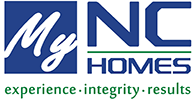My NC Homes covered the Tiny House craze previously in our blog and we continue to get questions and find applications for tiny house design that are in demand throughout The Triangle. We will focus a bit on pros and cons of building tiny homes, as opposed to just hiring contractors and building out additions on existing homes, and some of the many fun applications for the concept in 2021.
Note: it is important that before building anything you check with your local zoning department and confirm whether you can build a tiny home or addition on your property. The vast majority of cities and town within the Research Triangle have "impervious surface" restrictions or other zoning restrictions that may impact your ability to add an addition to your existing property. If you live within a neighborhood that has a Homeowners Association you'll need to check with them as well, as they too may have covenants or restrictions that limit you.
New Big Ideas for Tiny Homes
Before we dive into Tiny Home logistics, here are some of the newer ideas for tiny homes. Some ideas for tiny homes include use as a guest home, income producing rental, home for an loved one in retirement to live close by or as an arts studio. As the housing market remains constricted, tiny homes remained in high demand.
Some spaces that just do not make sense in smaller floorplans, can exist perfectly in a separate tiny space. Offices, creative spaces or studios, and childrens school houses for those in a remote situation have been lifesavers the past year. While this trend initially was popular for downsizing, portability, sustainability, and space saving, it has gained in popularity as a place for privacy, concentration, in other words as an outpost of an existing home. It is easier to run power and water on a lot with existing supplies and meters, and getting approvals in some areas may be easier. Let's explore a little further how to go about building a tiny house or an addition.
Tiny Home or Big Home Improvement
Home improvements skyrocketed in 2020. The combination of a tight housing market combined with the time spent at home have seen this trend continue. Homeowners are looking to make the most of their property whether that means supplemental income from a tiny home on an existing lot, a guest home, he/she cave, schoolhouse, private office, or any number of uses a tiny detached home or home addition offers.
The popularity of Tiny Home has given rise to tons of tiny home touted solutions from kits on Wayfair that start around $1000 for basic sheds, to $20,000 prefabricated kits from Home Depot. Some of these you can build in a weekend, while others require advance planning. Don't forget to consider any tax ramifications and necessary permits. You may be under the impression that building a structure on your property may be logistically easier than an addition, but realistically they are similar. As a rule for any construction, demolition, or work done on a single-family home over $15000 will need separate permits for water, electricity, and plumbing according to NC General Statute 160A-417.
Tiny Home To Go?
If you do decide to go the tiny home route, whether a tiny space is portable makes a big difference in zoning. Wheeled homes are not permissible as habitable dwellings in North Carolina and cannot be lived for more than 180 days continuously. This makes the tiny home that stays put as a permanent dwelling on your property, a more favorable option for many unless they are looking for an RV-style solution to tiny living.
Financing Tiny Homes vs Home Improvements
Financing a tiny home is more complicated than carrying a traditional mortgage. There are three tiny home options financing options, builder loans, personal loans, and RV Loans. These are the steps you need, logistically for financing a tiny home. First, you would need to own land or have access to land, and if you are shopping for land to buy, be sure that zoning permits building or wheeled parking continuously. If you purchase a lot, this can be traditional financing, and you will need to determine hookups for power and water. When you purchase an existing home to remodel with tiny ideas, you can use a traditional loan, you can purchase a tiny home that manufactured with a personal loan, which carries higher interest, or you can borrow using an RV loan. The RV would require your home to be on wheels and meet certain criteria.
Alternatively, if you are building on your own land or updating your home with an addition, you can refinance your mortgage, take out a home equity line of credit, a personal loan, take out a credit card, or pay cash. There are a few factors here to keep in mind regarding a tiny home vs a home addition. Home additions require engineering, insulation, plumbing, and wiring, which may prove more expensive than a smaller home on the property. The tiny home costs an average of $25,000 and home additions can exceed that budget considerably. If you are planning on renting your tiny home, there are also tax breaks for improvements that yield income.
The Tiny Home Craze is not going anywhere and many consider it to be a move towards more sustainable living, in support of a digital nomad lifestyle, and even an option for retirement. There are more uses for tiny dwellings across the country that are hastening changes to laws and zoning as well since they can remedy affordable housing and homelessness. If you are interested in learning more about Tiny Homes or buying land to build a home in North Carolina, Chapel Hill, Durham, or Research Triangle, contact My NC Homes today.
Posted by Larry Tollen on
Leave A Comment